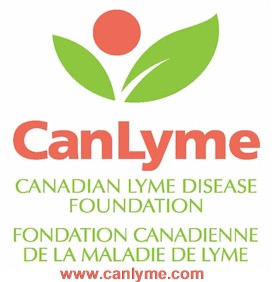AMMI cries foul (or is that fowl)
Canadian medical microbiologists, who are responsible for Lyme disease testing across Canada, were asked if they wanted to participate in the CTV W-5 show that aired November 14th Canada-wide. They chose not to participate. Now they are crying foul and have issued a press release bemoaning W-5's journalism. CanLyme has issued our response.
Ottawa, November 23, 2009 - AMMI Canada’s ID specialists and medical microbiologists work to reduce the impact of infectious diseases by diagnosing and caring for patients with infections, operating microbiology laboratories and providing expert advice on how to manage and control infectious disease threats, like Lyme Disease (LD), to the health of Canadians.
One of AMMI Canada’s goals is to protect and educate the public through promotion of the accurate diagnosis, prevention and treatment of human infectious diseases.Dr. Gerald Evans, President of AMMI Canada, says, “This sort of unbalanced and poorly informed reporting does no one a service, neither those persons who truly have LD nor the people who have diseases other than Lyme that need an accurate diagnosis to ensure their correct medical management.” There is absolutely no benefit in needlessly alarming the public or contributing to the unfounded belief that the Canadian medical community is ignoring LD.
Canadian ID specialists and medical microbiologists are very sympathetic to the challenges facing misdiagnosed patients. We have taken steps to educate our members, as well as our medical colleagues, on LD. In 2008, AMMI Canada devoted a symposium on this topic during its annual conference. Many of our members have been involved in continuing medical education sessions in our communities and have worked with public health officials to educate the general public on how to protect themselves from LD.
There is no dispute that LD is seen in Canada.Canadian doctors are aware that the geographic distribution of the tick that can transmit LD has increased. It is primarily found in areas that have the ecological conditions that favour persistence of the Ixodes tick vector.These conditions have warmer temperatures, an adequate ground cover in the winter, principally oak leaves to prevent dehydration of the ticks, and the natural hosts (white-tailed deer and the white-footed mouse) required bythese ticks to participate in the effective transmission of the LD bacterium. Recent Canadian research on LD has provided valuable surveillance tools that identify where the tick may be found and how that information helps with diagnosing LD in patients. A June 2009 article in the Canadian Medical Association Journal, The emergence of Lyme disease in Canada, states, “Because the specificity of serologic tests for Lyme disease may not be high, epidemiologic findings about the likelihood of exposure to ticks that transmit Lyme disease inform the serologic diagnosis, rather than the other way around.”
The W5 story does not address the substantial debate about whether “incurable, chronic” LD truly exists. Borrelia burgdorferii, the bacterium that causes LD, is susceptible to many antibiotics and treatment of Stage 1 and 2 LD with a single course of antibiotic therapy is typically very successful. Stage 3 LD, which manifests principally with a form of arthritis, may respond less well to antibiotic therapy. It is hypothesized that since the mechanism by which B. burgdorferii causes LD-associated arthritis is not completely elucidated, persistent symptoms may well involve an autoimmune phenomenon triggered by similarities between antigens of the LD bacterium and human antigens in joint tissues. If this is the case, then prolonged antibiotic therapy after eradication of the microorganism will not be of any value to patients and, at the same time, place them at risk for complications from the overuse of antibiotics. This hypothesis is supported by studies that have shown no benefit to multiple antibiotics or prolonged antibiotic therapy to treat “chronic” LD.
AMMI Canada doctors are at the forefront of antibiotic resistance issues and are confronting the over-use and misuse of antibiotics.“We must consider the potential serious side effects of inappropriate antibiotic use for unproven LD including: Clostridium-difficile-associated disease, life-threatening drug interactions and antibiotic resistance,” offers Evans.
In 2005, the Centers for Disease Control and Prevention (CDC) questioned the validity of some American laboratory tests for LD that use a different standard for interpretation.These tests often cost hundreds of dollars and are billed directly to the patients. “This is cause for scepticism,” says Evans. “Furthermore, some American doctors who claim to be LD specialists do so without any requirement or regulatory authority to verify their credentials or any established standards for claiming such a title.” One of the issues raised in the W5 story is the stated “fact” that 19,000 cases of LD have been seen in US Border States, and therefore Canada must be under diagnosing cases of the disease.This is not balanced by pointing out a possible over-reporting of LD in the US, engendered by a medical system that pays substantial dividends to both laboratories and physicians for the diagnosis and management of purported “chronic” LD. As one patient’s family reported in the story, they spent over $90,000 dollars on medical bills for care in the US.
“In many ways it is unfortunate to see a story that misleads and confuses the public on this important health issue and besmirches the earnest efforts of physicians and scientists who want to help patients with LD and accurately diagnose patients who have medical disorders that are not LD, so that they are correctly treated.” concludes Dr. Evans.
AMMI Canada is leading the battle against infectious diseases.When issues related to infectious disease and medical microbiology break, we support efforts to make accurate, up-to-date health information available to the public.
For More Information Contact :
Gwen Lovagi
Association of Medical Microbiology
and Infectious Disease (AMMI) Canada
T: + 1 613-260-3233 x.104
F: + 1 613 260 3235


No comments:
Post a Comment